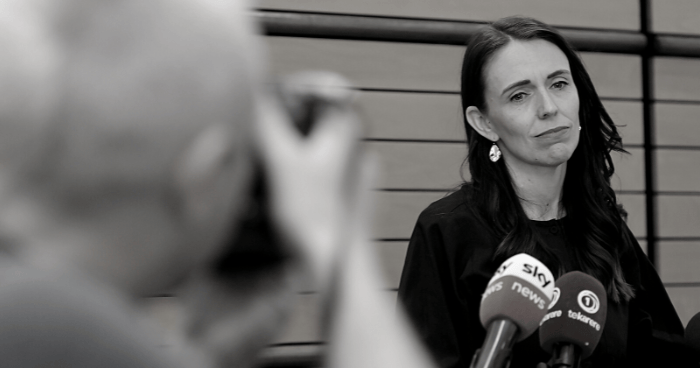
Kerry Marshall/Getty Images
When New Zealand Prime Minister Jacinda Ardern announced her resignation this week, she did so citing burnout. In a reflective, honest speech, she explained that she no longer had “enough in the tank” to do the job justice. She said that leadership was about giving as much as you can, for as long as you can, and then recognising when your time is up: “And for me, it’s time.” She said she looked forward to spending more time with her family, to “being there” for her daughter when she starts school, and “finally” getting married to her partner.
Ardern’s announcement was predictably met with both a wave of support, and critical, misogynistic headlines. But the following day, Ardern said that she had no regrets about her decision, and that she “slept well for the first time in a long time”.
Experiencing burnout is nothing new – but admitting it, particularly publicly, is still rare. “Most people don’t like to admit they can’t cope,” explains transformation coach Jo Glynn-Smith. “It gives the impression of failure or weakness. In fact, what Jacinda has done takes enormous strength and courage; the ability to set boundaries and know when enough is enough is incredibly refreshing. I hope it encourages others to do the same.”
What Ardern has demonstrated, Glynn-Smith says, is the importance of putting yourself first after years of working on behalf of others. “I wish more people would be able to recognise when it’s time to move on to something new,” she adds.
Below, Glynn-Smith explains how to spot the signs of burnout, how to manage the symptoms and how to know when to walk away.
What is burnout?
“Burnout is a work-related term that applies to individuals who can’t carry on, having been working under extreme levels of stress or pressure for sustained periods of time – for example doctors and nurses during the pandemic. They have pushed themselves beyond their limits.”

Kerry Marshall/Getty Images
How to spot the signs of burnout
“Spotting the early signs of burnout is extremely difficult. That’s because when we are working under pressure, there is very little time for mindfulness, self-reflection or stillness. We are just focused on the job; we are ‘all in’.
“If you are feeling physically, mentally or emotionally exhausted, performing below your usual level, feeling irritable or unfocused, or lacking in motivation, you may be experiencing burnout.
“The body is amazing and has its own way of telling us when there’s something wrong – little signals that we need to slow things down. These can take the form of a whole range of ailments like migraines, shoulder pain, back pain, anxiety, suddenly experiencing poor eye sight… The symptoms will just keep reoccurring and with more intensity each time. Our tendency is to treat the symptoms by self-medicating or seeking treatments, but we don’t often work on the causes. If left unchecked, over time the body will start to send stronger signals, like panic attacks or blinding migraines.”
How to manage the symptoms
“Take your health seriously. If you’re experiencing some unusual symptoms or extreme fatigue, it’s time to create some boundaries and slow down a little. All exertion requires recovery, and when you are working really hard for extended periods of time, you need to make sure that you factor some downtime in, too. This can take the form of a quieter weekend – or perhaps a week off if possible – some early nights, consciously watching what you eat or drink, or spending some time in quiet reflection.
“Many people get days in lieu when they have worked overtime, but very few use them for their intended purpose, which is recovery. Instead they tend to add days to a holiday or take the time a few months later – but you need to be more mindful than that. If you are struggling to set boundaries or feel guilty for taking time out, it might be worth exploring why. Why do you value your work more than you value your health? Without your health, you can’t work. This would be where I would come in to help create strategies to support a more balanced approach; I call it working smarter. This means working fewer hours, but with greater focus and intention, allowing more time for recovery, reflection and space – which in turn promotes things like creative thinking.”
How do you know when to walk away?
“It’s difficult to say exactly, but when you feel you are no longer able to do the job, either mentally, physically or emotionally, it’s time to stop. Pushing yourself, when you are finding something too hard, could have severe consequences.”
Is experiencing burnout inevitable in high-powered jobs?
“No, I don’t think burnout is inevitable, but I do think the people who take their health and wellbeing seriously (for example eating well, sleeping for seven hours, reducing alcohol and sugar intake, exercising, practising meditation etc) are likely to be able to sustain pressure more effectively than those that burn the candle at both ends.
“In the end, our health is our most valuable asset. Without it we have nothing, so it’s well worth the investment.”
For more from Jo Glynn-Smith, visit joglynnsmith.com, or follow her on Instagram.
This article originally appeared in harpersbazaar.com



